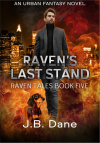How long have you been writing?
The first thing I wrote was when I was 12. My two best friends and I had run out of Louisa May Alcott’s stories with Jo March and our available supply of Nancy Drew, so I wrote something. All I remember about it was that I used “foliage” in it and one of my friends wanted to know what that was. I have to admit, at the time I thought, “I have dumb friends.” I wrote longer things in high school, and the few times I’ve gone to high school reunions someone always says, “you’re the writer!” The first novel length story was written when I was out of work in my late twenties. But my first book to get a contract was when I was 42. Publication was a long time coming. Obviously, I had a craft to learn.
What do you wish someone would’ve told you about writing or publishing?
You won’t get rich doing this.
What is the biggest lesson that you learned about writing or publishing?
Perseverance. I rewrote the first three books for over a decade, often starting from scratch based on comments in rejection letters. But once the first book got a contract, the others followed shortly behind it.
What piece of information do you want to pass on to authors?
There is no one way to write fiction, there is only the way that works best for you. I’m a pantser. In school I never could write an outline for an essay without writing the essay first. That’s still what works best for me. Just start the movie in my head and write what I “see” and “hear”. Oddly enough, I heard that when Nora Roberts got her start and Silhouette wanted a synopsis, they were surprised at how fast she got a completed manuscript to them after they green lighted it – because she was writing the book first, then the synopsis.
Why do you like teaching authors?
I taught English Composition at the college level for over a decade, a compulsory course for all Freshmen. They didn’t want to write essays. Both newly published and pre-published authors WANT to write. That makes it such a pleasure to connect with them in workshops.
What can students/registrants expect to takeaway from your workshop?
I hope they have that “I Can Do This!” state of mind, because they can! The hardest part is sitting down and actually writing. It’s not the writing itself, but the sitting in front of the monitor that’s the trick. Imposter syndrome is a myth if you’re writing and rewriting, improving. It only applies if you’re calling yourself a writer but not writing anything.
What’s your core philosophy when it comes to teaching writing?
If you want it bad enough, you can do this, but that also means going through several drafts. A coach doesn’t tell a player the first day of practice, “That was great. See you for the first game.” He says, “Good. Now do it again another fifty times then we’ll move on to improving a different part of your game.” I’m the coach suggesting that students try something a different way and explaining why that makes more sense. Yes, it’s fiction, but logic still rules.
What do you believe is the most important thing a writing student should walk away with?
More confidence that they can write characters to life and send them on one heck of a trip than they had the first day they wafted through the virtual classroom door.
How do you approach giving constructive feedback without discouraging a student?
I’m an idea girl. I can dream up so many other ways a story can go, so when I comment back, I offer suggestions and explain what a change will do to benefit the story and satisfy a reader. Usually, it’s an expansion or a clarification. So far, the writers in my workshops claim this makes perfect sense and are eager to run with it.
Is there a common writing “rule” that you think is okay to break—and why?
Perhaps these aren’t quite “rules” but things some editors discourage: I like inventing my own words (my students will be familiar with mentions of not just secondary characters, but thirdendary ones) and breaking the 4th wall, which I do more than once in each book in my latest series.
How has teaching writing changed your own work or perspective as a writer?
I launched off into genre niches I’d never considered before. My first books are nothing like those I write today. And actually, I think they are better and more creative now.
BIOGRAPHY
Beth Daniels made the decision to be a novelist when she was in the 7th grade. It took another 30 years before she got her first contract, and a lot of rewrites – from scratch! – along the way, but she’s now been a published novelist for 35 years and is still writing. She goes by many pseudonyms. Beth Henderson writes historical romantic mystery, romantic comedy, contemporary romance, and cozy mystery. J.B. Dane writes urban fantasy PI mystery comedy, dabbles with extraterrestrials and rewrites fairy tales into comedy tales. Nied Darnell writes Weird West Steampunk and 1920s Dieselpunk. She holds a BA in History and an MA in English Composition, taught at the college level and jumped on the online fiction writing workshop bandwagon in 2010, when it was shiny and new.
Find her on Facebook at Log into Facebook for Beth Henderson; Log into Facebook for J.B. Dane.
At Pinterest at https://www.pinterest.com/bhendbks/


The first thing I wrote was when I was 12. My two best friends and I had run out of Louisa May Alcott’s stories with Jo March and our available supply of Nancy Drew, so I wrote something. All I remember about it was that I used “foliage” in it and one of my friends wanted to know what that was. I have to admit, at the time I thought, “I have dumb friends.” I wrote longer things in high school, and the few times I’ve gone to high school reunions someone always says, “you’re the writer!” The first novel length story was written when I was out of work in my late twenties. But my first book to get a contract was when I was 42. Publication was a long time coming. Obviously, I had a craft to learn.
What do you wish someone would’ve told you about writing or publishing?
You won’t get rich doing this.
What is the biggest lesson that you learned about writing or publishing?
Perseverance. I rewrote the first three books for over a decade, often starting from scratch based on comments in rejection letters. But once the first book got a contract, the others followed shortly behind it.
What piece of information do you want to pass on to authors?
There is no one way to write fiction, there is only the way that works best for you. I’m a pantser. In school I never could write an outline for an essay without writing the essay first. That’s still what works best for me. Just start the movie in my head and write what I “see” and “hear”. Oddly enough, I heard that when Nora Roberts got her start and Silhouette wanted a synopsis, they were surprised at how fast she got a completed manuscript to them after they green lighted it – because she was writing the book first, then the synopsis.
Why do you like teaching authors?
I taught English Composition at the college level for over a decade, a compulsory course for all Freshmen. They didn’t want to write essays. Both newly published and pre-published authors WANT to write. That makes it such a pleasure to connect with them in workshops.
What can students/registrants expect to takeaway from your workshop?
I hope they have that “I Can Do This!” state of mind, because they can! The hardest part is sitting down and actually writing. It’s not the writing itself, but the sitting in front of the monitor that’s the trick. Imposter syndrome is a myth if you’re writing and rewriting, improving. It only applies if you’re calling yourself a writer but not writing anything.
What’s your core philosophy when it comes to teaching writing?
If you want it bad enough, you can do this, but that also means going through several drafts. A coach doesn’t tell a player the first day of practice, “That was great. See you for the first game.” He says, “Good. Now do it again another fifty times then we’ll move on to improving a different part of your game.” I’m the coach suggesting that students try something a different way and explaining why that makes more sense. Yes, it’s fiction, but logic still rules.
What do you believe is the most important thing a writing student should walk away with?
More confidence that they can write characters to life and send them on one heck of a trip than they had the first day they wafted through the virtual classroom door.
How do you approach giving constructive feedback without discouraging a student?
I’m an idea girl. I can dream up so many other ways a story can go, so when I comment back, I offer suggestions and explain what a change will do to benefit the story and satisfy a reader. Usually, it’s an expansion or a clarification. So far, the writers in my workshops claim this makes perfect sense and are eager to run with it.
Is there a common writing “rule” that you think is okay to break—and why?
Perhaps these aren’t quite “rules” but things some editors discourage: I like inventing my own words (my students will be familiar with mentions of not just secondary characters, but thirdendary ones) and breaking the 4th wall, which I do more than once in each book in my latest series.
How has teaching writing changed your own work or perspective as a writer?
I launched off into genre niches I’d never considered before. My first books are nothing like those I write today. And actually, I think they are better and more creative now.
BIOGRAPHY
Beth Daniels made the decision to be a novelist when she was in the 7th grade. It took another 30 years before she got her first contract, and a lot of rewrites – from scratch! – along the way, but she’s now been a published novelist for 35 years and is still writing. She goes by many pseudonyms. Beth Henderson writes historical romantic mystery, romantic comedy, contemporary romance, and cozy mystery. J.B. Dane writes urban fantasy PI mystery comedy, dabbles with extraterrestrials and rewrites fairy tales into comedy tales. Nied Darnell writes Weird West Steampunk and 1920s Dieselpunk. She holds a BA in History and an MA in English Composition, taught at the college level and jumped on the online fiction writing workshop bandwagon in 2010, when it was shiny and new.
Find her on Facebook at Log into Facebook for Beth Henderson; Log into Facebook for J.B. Dane.
At Pinterest at https://www.pinterest.com/bhendbks/


Upvote
0